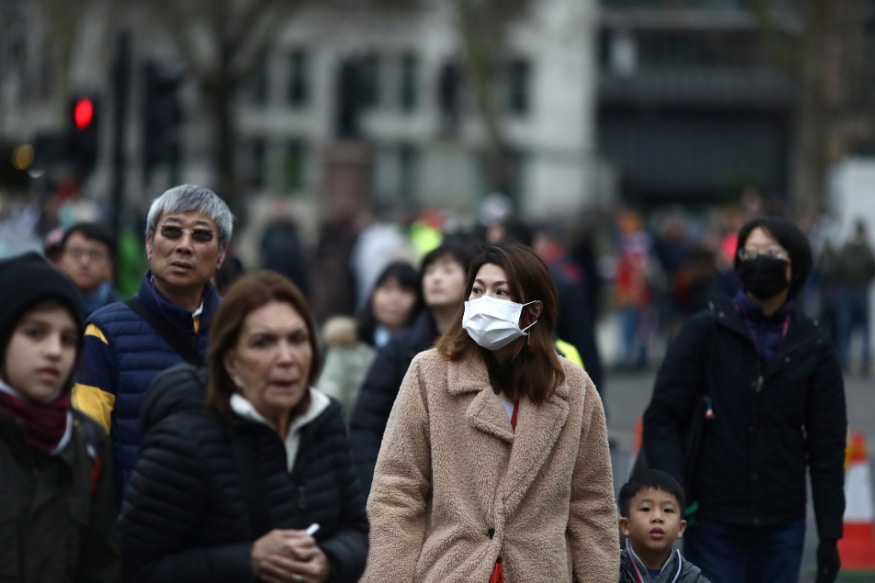Coronavirus Outbreak LIVE Updates: The deadly coronavirus will not cause victims to act like zombies, Malaysia's government said on social media, as officials act to correct the spread of misinformation surrounding the outbreak. As medical authorities seek to contain the virus, some social media users in Malaysia made a connection between the disease and the walking dead.Malaysia's health ministry dismissed the rumour in a tweet, however, saying: "The claim that individuals infected with this virus will behave like zombies is not true... Patients can recover." A number of posts in Malaysia on social media have wrongly claimed the number of deaths or infected people in the country. Police have arrested six people for spreading misinformation about the virus, a Malaysian Communications and Multimedia statement said. In the latest arrest, last Thursday, a 28-year-old woman was investigated for "improper use of network facilities". If convicted, she can be fined up to 50,000 ringgit or be jailed for a year, or both.
![Coronavirus Outbreak LIVE: 2nd Batch of Indians, 7 Maldivians Arrive in Delhi from Wuhan Coronavirus Outbreak LIVE: 2nd Batch of Indians, 7 Maldivians Arrive in Delhi from Wuhan]()
People wearing face masks are pictured in London, Britain.
Kerala today confirmed the second case of Coronavirus even as the death toll in China has increased to 304 with more than 14,000 cases. The second patient in Kerala has a travel history to China and has been admitted to an isolation ward and is currently stable. Meanwhile, three persons suspected to have symptoms of coronavirus were admitted to SMS Government Hospital in Jaipur. Their blood samples have been collected and the report is expected to come by Sunday evening, Dr D S Meena, Superintendent of SMS hospital said.
Figures from the National Health Commission released Sunday show an increase of 45 in the death toll and 2,590 in the number of cases for a total of 14,380, well above the number of those infected in in the 2002-03 outbreak of SARS, or severe acute respiratory syndrome, which broke out in southern China before spreading worldwide.
Meanwhile, six officials in the city of Huanggang, neighbouring the epicentre of Wuhan in Hubei province, have been fired over poor performance" in handling the outbreak, the official Xinhua News Agency reported.
It cited the mayor as saying the city's capabilities to treat the patients remained inadequate and there is a severe shortage in medical supplies such as protective suits and medical masks."
Despite imposing drastic travel restrictions at home, China has chafed at those imposed by foreign governments, criticising Washington's order barring entry to most non-citizens who visited China in the past two weeks.
Australian Prime Minister Scott Morrison announced similar measures Saturday, following Japan and Singapore.
South Korea and India flew hundreds of their citizens out of Wuhan, the city at the centre of an area where some 50 million people are prevented from leaving in a sweeping anti-virus effort. The evacuees went into a two-week quarantine. Indonesia also sent a plane.
The virus' rapid spread in two months prompted the World Health Organisation on Thursday to declare it a global emergency.
That declaration flipped the switch from a cautious attitude to recommending governments prepare for the possibility the virus might spread, said the WHO representative in Beijing, Gauden Galea. Most cases reported so far have been people who visited China or their family members.
The agency acted out of concern for poorer countries that might not be equipped to respond, said Galea.
WHO said it was especially concerned that some cases abroad involved human-to-human transmission.
Countries need to get ready for possible importation in order to identify cases as early as possible and in order to be ready for a domestic outbreak control, if that happens, Galea told The Associated Press.
The United States declared a public health emergency on Friday and President Donald Trump signed an order barring entry to foreign nationals who visited China within the last 14 days, which scientists say is the virus' longest incubation period. The restrictions don't apply to immediate family of American citizens and permanent residents.
China criticised the US controls and unfriendly comments alleging that Beijing was failing to cooperate.
Just as the WHO recommended against travel restrictions, the US rushed to go in the opposite way. Certainly not a gesture of goodwill, said foreign ministry spokeswoman Hua Chunying.
Australia, Germany, Japan, South Korea, the United Arab Emirates, the United States and Vietnam all reported new cases Saturday. Spain confirmed its first case - a German man who had close contact with an infected person in Germany and then travelled to the Canary Islands with friends. Four friends who were hospitalised with him have not shown symptoms.
Both the new virus and SARS are from the coronavirus family, which also includes those that cause the common cold.
The death rate in China is falling, but the number of confirmed cases will keep growing because thousands of specimens from suspected cases have yet to be tested, WHO's Galea said.
The case fatality ratio is settling out at a much lower level than we were reporting three, now four, weeks ago, he said.
Although scientists expect to see limited transmission of the virus between people with family or other close contact, they are concerned about cases of infection spreading to people who might have less exposure.
![Coronavirus Outbreak LIVE: 2nd Batch of Indians, 7 Maldivians Arrive in Delhi from Wuhan Coronavirus Outbreak LIVE: 2nd Batch of Indians, 7 Maldivians Arrive in Delhi from Wuhan]()






No comments:
Post a Comment